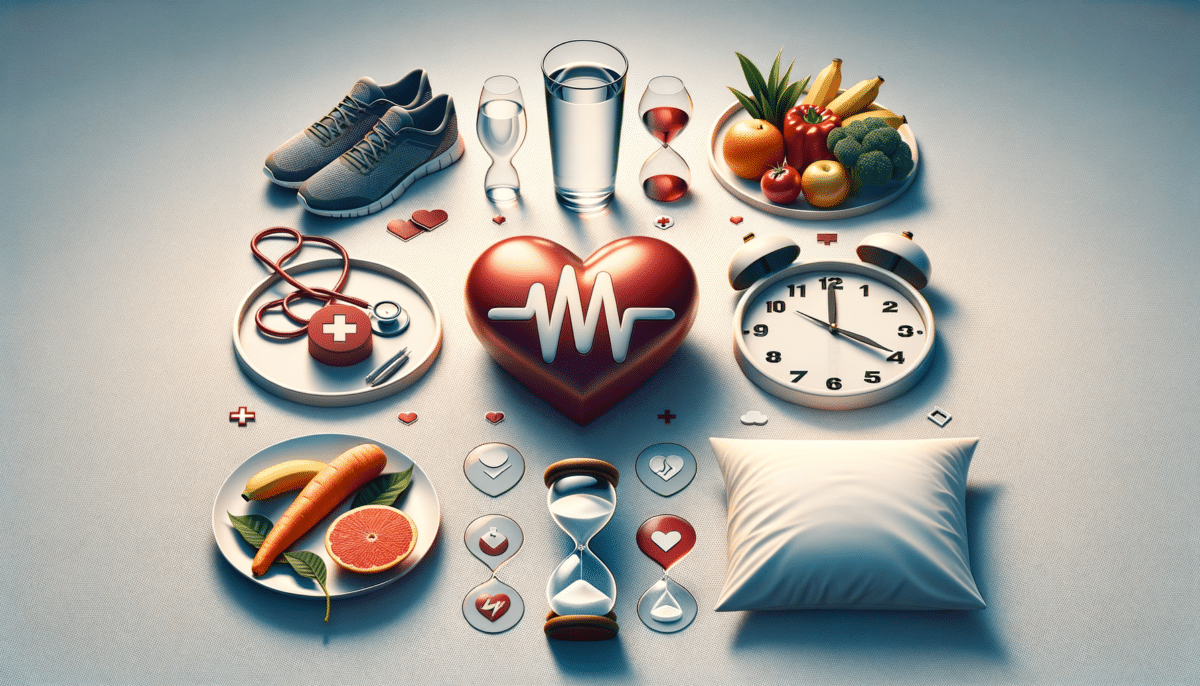Understanding Hypertension: A Silent Threat
Hypertension, commonly known as high blood pressure, is a prevalent condition affecting millions worldwide. Often referred to as the “silent killer,” it typically presents no symptoms until severe complications arise. Understanding its impact is crucial, as hypertension is a leading cause of heart disease, stroke, and kidney failure. The condition is defined by persistently high pressure of blood against the artery walls, which can lead to severe health problems over time.
Multiple factors contribute to hypertension, including genetic predisposition, lifestyle choices, and environmental influences. While some risk factors such as age and family history are non-modifiable, others like diet, physical activity, and stress levels can be managed. Recognizing these factors is the first step toward effective management and prevention.
Hypertension can be classified into two types: primary (essential) hypertension, which has no identifiable cause and tends to develop gradually over many years, and secondary hypertension, which is caused by an underlying condition such as kidney disease or hormonal disorders. This distinction is important as it guides the treatment approach.
Lifestyle Modifications: The First Line of Defense
When it comes to managing hypertension, lifestyle modifications are often the first line of defense. These changes not only help in controlling blood pressure but also enhance overall well-being. Key lifestyle adjustments include:
- Adopting a heart-healthy diet rich in fruits, vegetables, and whole grains while reducing sodium and unhealthy fats.
- Engaging in regular physical activity, such as brisk walking, swimming, or cycling, which can help lower blood pressure and maintain a healthy weight.
- Limiting alcohol consumption and quitting smoking, both of which can exacerbate hypertension.
- Managing stress through techniques such as meditation, yoga, or deep breathing exercises.
These lifestyle changes can significantly reduce the risk of hypertension and its associated complications. Consistency is key, and even small, incremental changes can lead to substantial health benefits over time.
Pharmacological Treatments: A Pillar of Hypertension Management
For many individuals, lifestyle modifications alone may not suffice in managing hypertension, necessitating the use of medications. Pharmacological treatments are tailored to the individual’s specific needs and medical history, often involving one or more of the following classes of drugs:
- Diuretics, which help the kidneys remove excess sodium and water, reducing blood volume.
- Beta-blockers, which reduce the heart rate and the heart’s output of blood.
- ACE inhibitors and ARBs, which relax blood vessels by blocking the formation or action of a natural chemical that narrows blood vessels.
- Calcium channel blockers, which prevent calcium from entering the heart and blood vessel muscle cells, thus relaxing them.
These medications are often used in combination to achieve optimal blood pressure control. Regular monitoring and consultation with healthcare providers are essential to adjust treatments and manage any potential side effects.
Innovative Approaches: Emerging Therapies in Hypertension
As research in hypertension continues to evolve, new and innovative treatment approaches are emerging. These therapies aim to address the limitations of traditional treatments and offer alternative options for patients. Some notable advancements include:
- Renal denervation, a minimally invasive procedure that targets the nerves around the kidneys to lower blood pressure.
- Device-based therapies, such as implantable devices that modulate nerve activity to reduce blood pressure.
- Novel pharmacological agents targeting specific pathways involved in blood pressure regulation.
These emerging therapies hold promise for individuals with resistant hypertension or those who experience adverse effects from conventional medications. However, they are still under investigation, and their long-term efficacy and safety require further study.
Conclusion: Taking Control of Your Health
Hypertension is a manageable condition, and with the right approach, individuals can lead healthy, fulfilling lives. By understanding the various treatment options available, from lifestyle modifications to pharmacological interventions and emerging therapies, patients can work with healthcare providers to develop a personalized management plan. Regular monitoring, adherence to treatment, and a proactive approach to health can significantly reduce the risks associated with hypertension and improve quality of life. Remember, taking control of your health is a journey, and every step counts.
